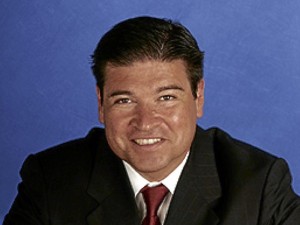Filipinos becoming owners from renters
A real estate industry, buoyed by cheap lending rates and more affordable units, is driving the Philippines closer to becoming a country of owners rather than renters.
American-Filipino Rick Santos, chair of CB Richard Ellis Philippines (CBRE), says that the Philippine urban centers can emulate Singapore’s transformation into a clean and green city with the on-going “democratization” of its property sector.
“Low interest rates have made renters into home owners and this has created a sense of pride in more Filipinos. Once they owned their houses, they took better care of their houses because they want to pass these on to their children as compared to somebody living on a one-year lease,” says Santos in an interview.
Santos relates how he took a delegation of Filipinos to Singapore a few years to learn first-hand the tiny city-state’s makeover from a sleepy stopover point into a business hub in the region and how home ownership played a role in its change.
The Bangko Sentral ng Pilipinas reported that interest rates have dropped to an average of 6.34 percent as of last month, while some institutions like Pag-Ibig, or Home Mutual Development Fund, lend up to 30 years.
“What we are seeing is a democratization of the market not unlike the baby boom years in the US when returning vets from the World War were given low borrowing rates to be able to afford the homes they want. If we wind the clock pre-1997, interest rates were north of 16 to 18 percent. Bank loans now are more realistic and longer term,” says Santos. “Encouraged by cheaper loans, more firms are building units at affordable prices to put home ownership within the grasp of masses.”
While some pundits have warned of an imminent glut in property by 2014, Santos is optimistic that the industry will continue to grow considering that interest rates may continue to fall (with the Philippines poised for more credit upgrades later this year) and demand for residential and office space remaining strong with a large number of the population still looking for homes and foreign investments continuing to flow in the country.
“Having been here for almost 20 years, I’ve seen many cycles. I was here in the Asian financial crisis and the global crisis. What’s different this time is we have a strong base. We have record low interest rates because banks are extremely liquid and solid. The commercial and office accounts are being drive by the BPO (business process outsourcing) sector which is expected to grow 20 to 30 percent,” says Santos.
He adds that after going through two global financial meltdowns in the last 14 years, property developers have not only become more financially stable but also more “well-rounded.”
“They are not just niche players specializing in one sector like residential or office. With the new opportunities in the market, more buyers can now afford having a primary home in Metro Manila and a secondary home in a beach front. Developers have to provide multiple assets because that is what the clients are demanding,” says Santos.
The strong appetite for office space has spilled over to the commercial, residential and leisure sectors as increasing income for Filipinos lead to the construction of more shopping mall, houses and condominiums and vacation homes.
Aside from having a more solid base, Santos says the current property boom is being felt across the archipelago and not only in Metro Manila and its suburbs.
“We are seeing the wealth effect happening—there is more money going to the middle class, more infrastructure, more investments for education,” says Santos. “We have been criticized for not being part of the mainstream financial world. That’s a positive now because mainstream is having big problems. From debtor to creditor status helping with the bailout, that’s a good situation to be in.”
The financial troubles that hound the US and European markets would further drive their companies to establish BPO units in the country as they search for ways to boost their margins from outsourcing.
“We’ve worked with a lot of foreign investors who’ve been here in both good and tough times. They think the President has turned the corner in terms of seeking growth stability and that is a credit to President Aquino’s push to establish more transparency in the government,“ says Santos.
Investors from India, Korea and China have joined American and European investors in building projects not only in traditional business centers such as Makati and Ortigas, but also in fast growing urban areas such as in Quezon City, Davao, Clark and Baguio.
“People are starting to realize that if you come here, there is a compelling case for profitability because the place is stable,” says Santos.
With foreign investors and tourists answering the government’s call to invest here, Santos adds that it is the turn of the government to respond by putting up the infrastructure or the roads, bridges, airports, shipping ports and telecommunication facilities that will make all the President’s vision fall into place.

